My rants tend to take a nostalgic bent, but I find I try to stay away from the true “retro blogging” front. I rarely venture earlier than ’93, and there are so many bloggers that already have a handle on the ’80s stuff. That said, the folks over at UnderScoopFIRE! and ColdSlither Podcast have really kind of stoked the fires for my nostalgia. Having followed them on Twitter, and listened to their podcasts, I realize that they’re my kind of people. Every day, I can count on a great debate like “Stone Cold OR The Rock?” or “Ma’am and George Papadapolis OR “Philip and Maggie Drummond?” These aren’t the debates you get from CNN, but these questions must be asked! So, the wheels have been turning, and I’ve started thinking about 80s pop culture, and some of the quirk inherent to that era. One such phenomenon I’d like to refer to as “Who’s That Guy?”
Sitcoms have really evolved over the past 50 or so years. Before we settled on the whole single camera, no laugh track model (The Office), we had the multicamera, studio audience model (Three’s Company). In the beginning, these shows usually starred some comedian or variety act, maybe a husband and wife team. Then, we got to the 70s where things were a bit more politically charged, and sitcoms began to explore the workplace (Mary Tyler Moore). In the ’80s, however, shit got weird.
In the 80s, shows centered on a family model, and tended to have male family friend who Just Might Be Gay. Who’s that guy? Why is he here? What’s his motivation? He wasn’t just a wacky neighbor, as those had been around for years. No, this was something different. Of course, he couldn’t actually be gay, as Three’s Company showed us that you could only be gay if you weren’t (Ha! He’s only pretending). No, these characters seemed like they were testing the waters of America’s acceptance of the potential of a gay sitcom character. The role disappeared in the 90s when shows gravitated towards the Living Single model – centered around a group of friends who are primarily not immediate family; I’d say Friends model, but any black person under the age of 50 will tell you that Living Single did it first (Honestly, I think TGIF’s Going Places might have actually pioneered the whole thing, but I digress). It’s said that the funniest jokes have some truth to them, so it stands to reason that these roles were possibly meant to ease America into the idea of homosexuality, without fully understanding how best to accomplish that. After all, this was new territory for the era, so there wasn’t really a road map as to how to successfully pull this off. These characters were always played as “bachelors”, but little “bacheloring” was done on their part. It’s kinda like your middle-aged uncle who lives with his “friend”, Kevin. At most, they were played for comic relief. Still, their addition always seemed a bit off, as if mandated by the network. I want to take a closer look at some of these characters.
In the sitcom Webster, real-life couple Alex Karras and Susan Clark take in little Emmanuel Lewis, and hilarity ensues! Not really. Anyone with eyes knew that this was just a Chinese knockoff of Diff’rent Strokes. I wonder if white folks were as crazy about adopting black kids as TV led me to believe. Seriously, TV made it seem like a typical yuppie weekend agenda was:
_Play tennis at the club
_Brunch
_Detail the BMW
_Go down to the orphanage and look at the black kids
The saddest thing about Webster was that he wasn’t even a part of the original premise. It was just meant to be a show about the couple, but everyone was apparently riding the wave of black adoptions (gotta catch ’em all!), so Webster was pigeonholed into the show. And then he took over. And the real life couple wasn’t pleased.
Anyway, despite all the behind the scenes drama, something interesting was happening onscreen. You see, the show introduced Jerry (played by Henry Polic II – how do you even become a “II”? Don’t you have to be a JUNIOR? Anyway…), who was the male secretary to Katherine Papadapolis. Hold up, MALE SECRETARY?!! But that’s a WOMAN’s job, like housekeeping (little did we know the 80s would also turn that occupation on its head, too). Anyway, I’ve watched a LOT of TV. We’re talking a LOT. That said, I can’t remember an important episode featuring Jerry. I do remember him dressed up as Dracula once. Otherwise, I just remember him as looking like he could be Cousin Larry Appleton’s stand-in. As a child, though, all I could think was “Why is he here? They already want me to believe these rich white folks want Webster, and now I’ve gotta make sense of him, too?!” I don’t know if there were any episodes about Jerry going on dates with women way out of his league, or a rushed marriage storyline or anything. In hindsight, part of what taints my memory of him is the Britcom, Take A Letter, Mr Jones. In that show, John Inman (of Are You Being Served? fame) plays a male secretary, and I don’t think John Inman EVER played a straight character, so I guess I’m applying that bias to Jerry on Webster. Was Webster sending a message through established gender roles or was it trying to change established gender roles? Let’s move on to another example, shall we?
Another quirky 80s sitcom was Too Close For Comfort, starring Mary Tyler Moore/Caddyshack alum, Ted Knight. This show was all over the place, partly because it went from network to first-run syndication – changing plot points as it went along. Mainly, Knight played Henry Rush, a cartoonist whose most popular strip was Cosmic Cow. He lived in San Francisco with his wife and hot daughters. Oh, and Monroe Ficus.
Played by Jim J. Bullock, Monroe started out as a friend of Henry’s daughters. While he’s a klutz and always tends to gum up the works, his heart is usually in the right place. Over time, Henry becomes a bit of a father figure to him – especially once the daughters are written out of the show. The problem with Monroe, though, is that he’s a character that just doesn’t exist in that time period. I mean, in today’s vernacular, you would classify him as a manchild, but not in the Judd Apatow sense of the word. Those characters just don’t want to embrace responsibility, while Monroe just had a Peter Pan naivete about him. He never dated any of Rush’s daughters, nor did he even try. I’ve been watching the show a lot lately on Antenna TV, and he doesn’t seem to ever really have girlfriends. Then, there’s the “very special episode” where he’s raped during his shift as a mall guard. It’s played for comedic effect, even though there’s a buried message about how men can be raped, too. He’s embarrassed to go to the police, but Henry convinces him that he should. The whole message isn’t conveyed very well, and you find out he was raped by a burly senior citizen, so it’s still “Haha, poor Monroe!”
As a character, Monroe was a sweet kid, but what was his true purpose? Sure, he served as a foil for Henry (much like the Urkel and Carl relationship from Family Matters), there are still a lot of questions that need to be answered about the character’s motivations. Early on, we learn that his own parents don’t really even care about him, from dissuading him from visiting, to not even calling on his birthday. This is part of why Henry decides to make time for him, but why did the Ficus clan disavow him?
Then, there’s the fact that the character was played by Jim J. Bullock. A longtime HIV survivor, Bullock has never been shy about his sexuality, and he actually learned he had the virus during the final season of Too Close For Comfort. I often wonder if Monroe never chased women because they felt the audience wouldn’t believe it OR if Monroe was actually as gay a character as network TV was willing to allow at the time.
Here’s where I wanted to talk about Joey Gladstone from Full House. I’ve always had a problem with Full House because I don’t know why Danny Tanner puts up with all those freeloaders. Seriously, Joey wasn’t a blood relative, and it seemed like they were helping him more than he was helping them. Also, when you get married, it’s time to move out. When you have a baby, it’s time to move out. When you become a DJ, it’s time to move out. You do NOT move into the attic, expand said attic, or install a studio in the basement. As you see, though, most of my problems were actually with Jesse – Joey was just along for the ride. Plus, any theories about Joey were dispelled by Wolfgnards’s excellent takedown of what was really going on in the Tanner household.
So, we’ve gone over just a few examples here. There are others who fit the mold (Dexter on Silver Spoons, Ralph Simpson on Gimme A Break!, etc), while others don’t (Charley Dietz on Empty Nest). In fact, speaking of Charley, he’s indicative of what happened later on in the decade. Played by “Joe Isuzu” actor David Leisure, Charlie was an oversexed douchebag, much like a real-life version of Family Guy‘s Quagmire. In the latter half of the decade, most of the “Who’s That Guy?” characters would follow this path, as womanizing cads with little moral character. If psychology tells you anything, these guys are actually more likely to have issues dealing with their sexuality than the characters like Jerry and Monroe. But this has already gotten too cerebral, and I’ll be damned if I’m gonna actually use my degree for a blog post! Can you think of any other characters who fit the mold? Am I way off base here? Do you just want me to hurry up and talk about comics and toys again? Stay tuned!


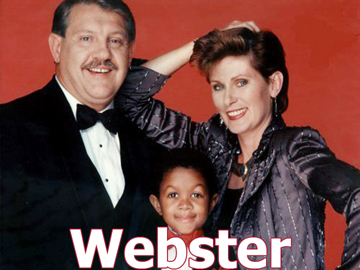
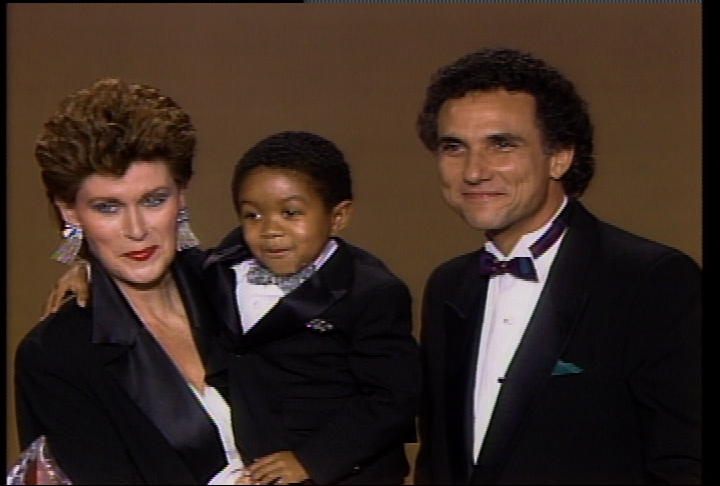
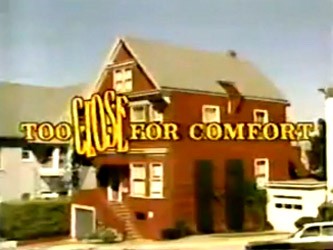
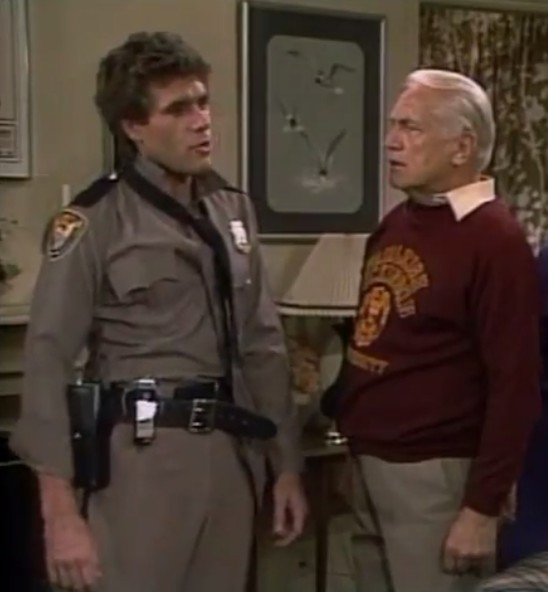
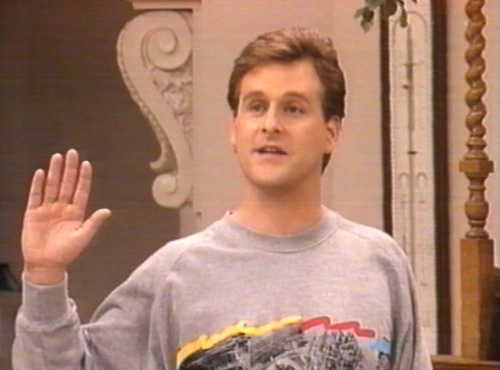



“Charlie was an oversexed douchebag, much like a real-life version of Family Guy’s Quagmire. ”
Or Larry from Three’s Company…of course scaled back a few decades. Quagmire is the guy Larry wanted to be.
Hell of a post, my friend! I totally forgot about Katherine’s male secretary on Webster, but seeing Henry Polic II in the credits was priceless!
Not sure if these qualify as “that guy”s but they were in a way sitcom sidekicks who faded into obscurity:
Skippy Handleman from Family Ties
Boner Stabone from Growing Pains (& perhaps Eddie later on after Boner left)
Burt from Valerie’s Family/The Hogan Family
This is so good. I’m a sucker for any examination of 80s sitcoms, and this one is one of the best I’ve read. Such good points made about things we just accepted or didn’t notice back when they were happening.
I had no idea about the real backstory of Webster – what a boring show that would’ve been sans Webster.
Very funny my friend. Now I’m wracking my brain for other examples. And just because I too am a trivia buff… One becomes a II if they are named after a family member who is NOT the parent. For example, William West has son and names the son the same thing…. The son is a Jr. However, if you name your son something other than your own name, when he has a son he may choose to name your grandson after you. Then he would be a II. Not sure if the same would apply if one were named after an uncle or close friend but with James we’ve seen I would imagine its whatever they’re willing to put on the birth certificate.
THIS is an awesome post! Critically well done and well written. Kudos!